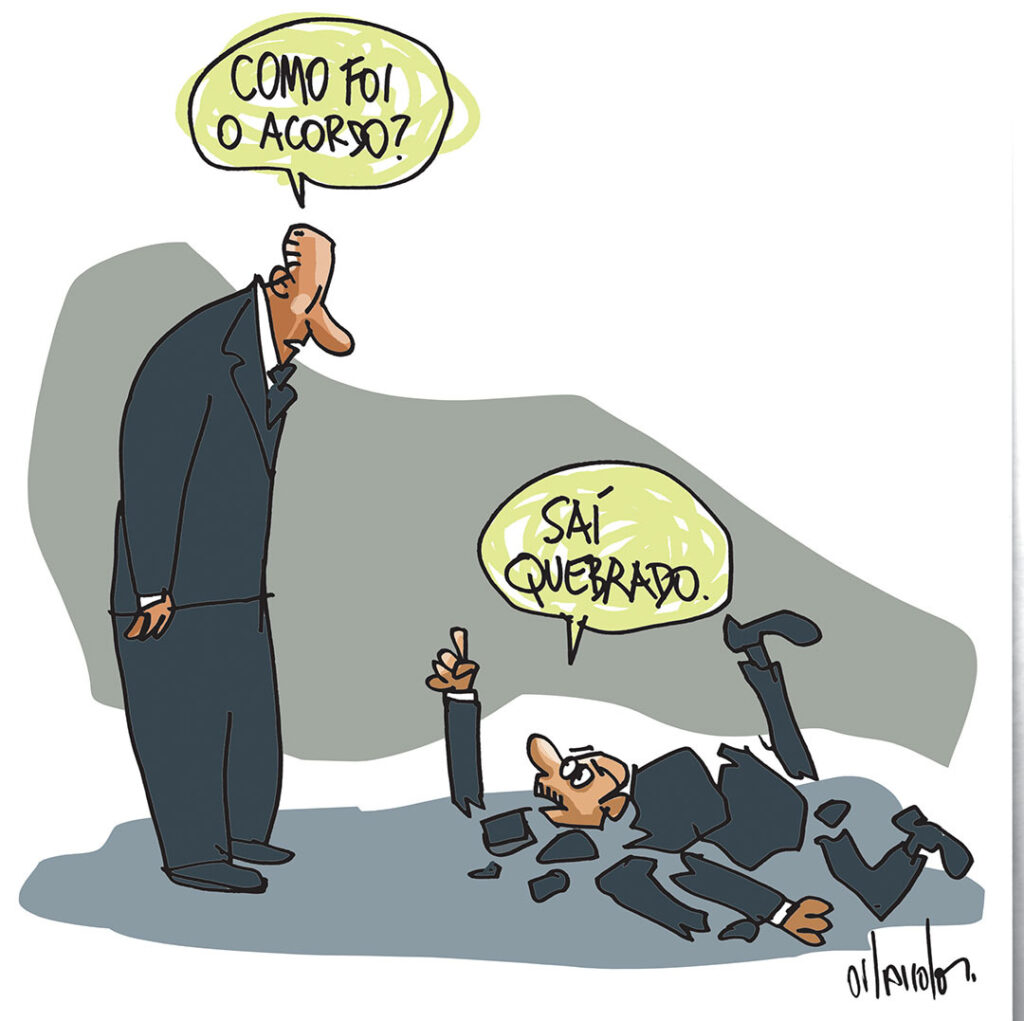Review of the Leniency Agreements - a new look

After the PSOL and PCdoB filed a lawsuit in the Federal Supreme Court (STF), asking for the annulment of the fines of all the leniency agreements already closed in Brazil, manifestations appeared in the Brazilian press against the annulment of the agreements, arguing that this would mean an attack on democracy and support for corruption. They maintain that the businessmen confessed to corruption and that, therefore, nothing could be revised. It is claimed that the leniency agreements did not break the companies. This allegation is based only on the fine imposed and does not take into consideration other factors that led the companies to their downfall.
The argument used in the initial action of unconstitutional state of things is that all agreements were made under coercion of businessmen by the Federal Public Ministry, under coordination of the Court of Curitiba. And, according to item II, of article 171 of the Civil Code, a legal transaction can be annulled due to a defect resulting from error, malice, duress, state of danger, injury, or fraud against creditors. The facts revealed later, through access to the messages of public agents, give us the certainty that there was an illegal coordination of legal actions against the companies and their businessmen, clandestine wiretapping, enormous abuse of authority, manipulation of the facts, illegal and excessive arrests, besides illegal wiretapping against public authorities, lawyers and threats to family members of the defendants. Whistleblowers were forced to confess what they did not do and reports such as campaign donations through "caixa 2" were deliberately transformed into active corruption, which is more onerous and more popular. All these facts, public and notorious, would be enough for a more detailed and critical analysis by the judiciary of everything that was done in these agreements. However, I understand that there is still an analysis on another focus. I am referring to the State's conduct after the leniency agreement.
The leniency agreement is an instrument of a contractual signatory nature - bilateral, with reciprocal obligations for the parties - signed by the legal entity and the representative of the State, whose nature is to enable the company, given its social function, established in item II, of article 170 of the federal constitution, to survive on an equal basis with other companies in the sector, by confessing and ceasing illegal practices, ensuring that such practices will not occur again, establishing internal controls, paying a fine and repairing the damage. The social function of the company translates into the creation of jobs, payment of taxes, generation of wealth, contribution to the economic, social and cultural development of the area where it operates, respect for consumers' rights, among others. On the other hand, it is guaranteed that the company will have no restrictions to contract with the State and avoids retaliation from other public, mixed economy, national or international entities. The relationship between the State and the lenient company must be similar to the one applied to other companies in the sector.

The Brazilian Civil Code establishes that one cannot demand the performance of an obligation by one who has not fulfilled his obligation under the contract. In other words, if the company has not ceased its illegal practices, it cannot reapply for contracts with the state. Likewise, if the state has not restored normal market conditions for the company to operate, it cannot demand payment of the fine. Based on the principles of good faith, the social function of contracts, and the prohibition of abuse of rights and unjust enrichment, the parties are required to behave ethically, based on trust and loyalty. Article 422 of the Civil Code establishes that "the contracting parties are obliged to observe, both in the conclusion of the contract and in its execution, the principles of probity and good faith". Therefore, once the leniency agreement is executed, the parties will have the obligation to comply with what was agreed upon, and if one of them fails to do so, the other party may not comply with its part, due to the fact that the provision of its obligation is correlated to the obligation of the other party. The law says "exceptio nom adimpleti contractus", which in Portuguese means exception of unfulfilled contract. Article 476 of the Civil Code further establishes that "In bilateral contracts, neither of the contracting parties may require the fulfilment of the other's obligation before its obligation has been fulfilled. Thus, the State needs to be in compliance with its obligations in order to demand the counterpart of the companies' fines. However, it is known that the state has not been fulfilling its part of the agreement. Several companies remain unable to contract with public companies, or with Petrobras. The blacklist of some companies that signed a leniency agreement persists. The BNDES extinguished export credit, the main source of financing for Brazilian companies abroad. The same BNDES did not honor the financing already contracted for the construction of the highway concessions and conditioned the release of the financing to the sale of shares in the concessions. The government halted public works in progress with lenient companies and did not institute any new works, which made heavy construction companies in Brazil unviable. New requirements were demanded from other national and international public entities, incurring more costs for the companies. Just to give an example of the absurdity, in addition to the original agreements with the Brazilian State, the companies were obliged to comply with requirements before the MPF of the states, municipalities, the TCU, CVM, Central Bank, IDB, CADE, CGU. Petrobras, a state company, did not adhere to the leniency agreements and filed lawsuits and arbitration proceedings against the companies and their controllers. The Curitiba MPF continued to pursue and prosecute other executives of the leniency companies, even if not involved in the reports. The confidentiality of the signed agreements was not respected and videos were posted on the Internet exposing people, to the detriment even of their safety. The reports were illegally leaked by the MPF in Brasilia to the press. The companies still have restrictions in the TCU.
The leniency agreement itself provides for hypotheses of termination of the agreement, without prejudice to the acquired rights of the one that does not cause the termination. Therefore, we may soon see companies withdrawing from the agreements they signed, seeking refuge in the courts because they believe that the State's counterpart was not honored.
It is common practice in the legal world for contracts signed at a certain time and scenario to be reviewed later on to adjust them to the new factual reality of the signatories. Articles 317 and 478 of the Brazilian Civil Code expressly provide for the possibility of correcting obligations, ensuring balance and justice in contracted obligations. Companies broke down after the agreements and the current economic reality does not indicate any short-term advances in the Brazilian economic recovery. Thus, in order to avoid further legal imbroglio arising from this situation, it would be better if the leniency agreements signed were renegotiated with ample transparency to adapt them to the current legal and economic reality of the lenient companies and of the country.



1 Comment
Excellent article MF!
Much better the text about your new channel!
It will be a success! 👏👏👏👏